With the signing of the armistice on 11th November 1918, the First World War came to an end. The conflict had claimed an estimated 15 to 19 million lives and approximately 23 million military personnel had been wounded. The National Archives website reports that there were 886,000 military fatalities in that time for servicemen who died in combat. On top of this figure, a further 2 to 3 million military deaths were put down to accidents, disease and deaths while prisoners of war. There are various records that we can use on TheGenealogist to find out more about ancestors who had served in the war that was supposed to end all wars.
One of the new resources, released to commemorate the centenary of the ending of World War 1, is called Officers that Died in the Great War Part I & II and is part of TheGenealogist’s Soldiers Who Died In The First World War, 1914-1918 online database. Using the records researchers are able to find an officer’s rank, cause of death, date of death, regiment and the section of the army that the officer had belonged to.
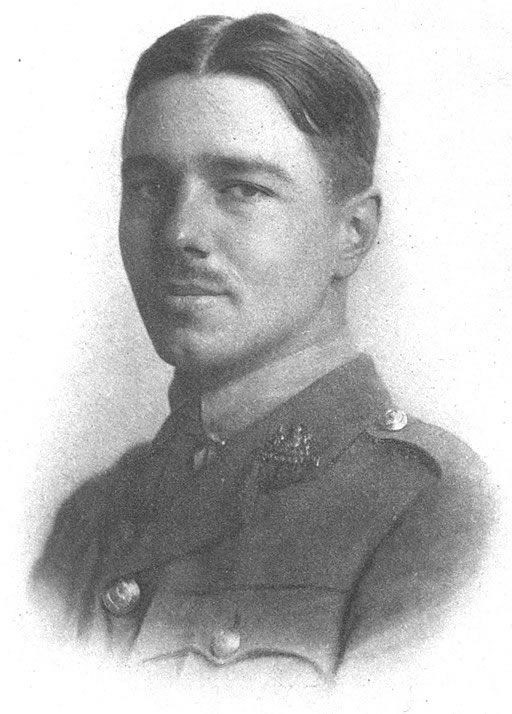
Killed in Action days before the War’s end
A tragic example is the famous English poet Wilfred Owen. He lost his life in the conflict just seven days before the war was to come to an end. Searching for him in TheGenealogist’s database reveals that Lt. Walter Edward Salter Owen was “K in A” (Killed in Action) on 4th Nov 1918.
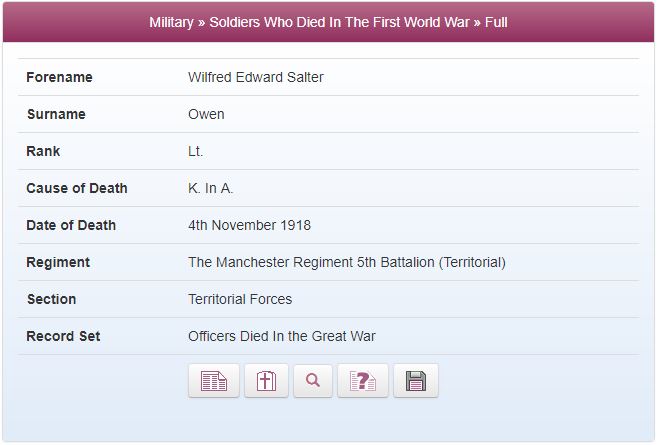
We can see that Owen was listed as one of those who died serving as a member of the 5th Battalion of the Manchester Regiment (Territorial). By then clicking the first link from the results we are taken to an image from an official H.M. Stationery Office book compiled after the war.
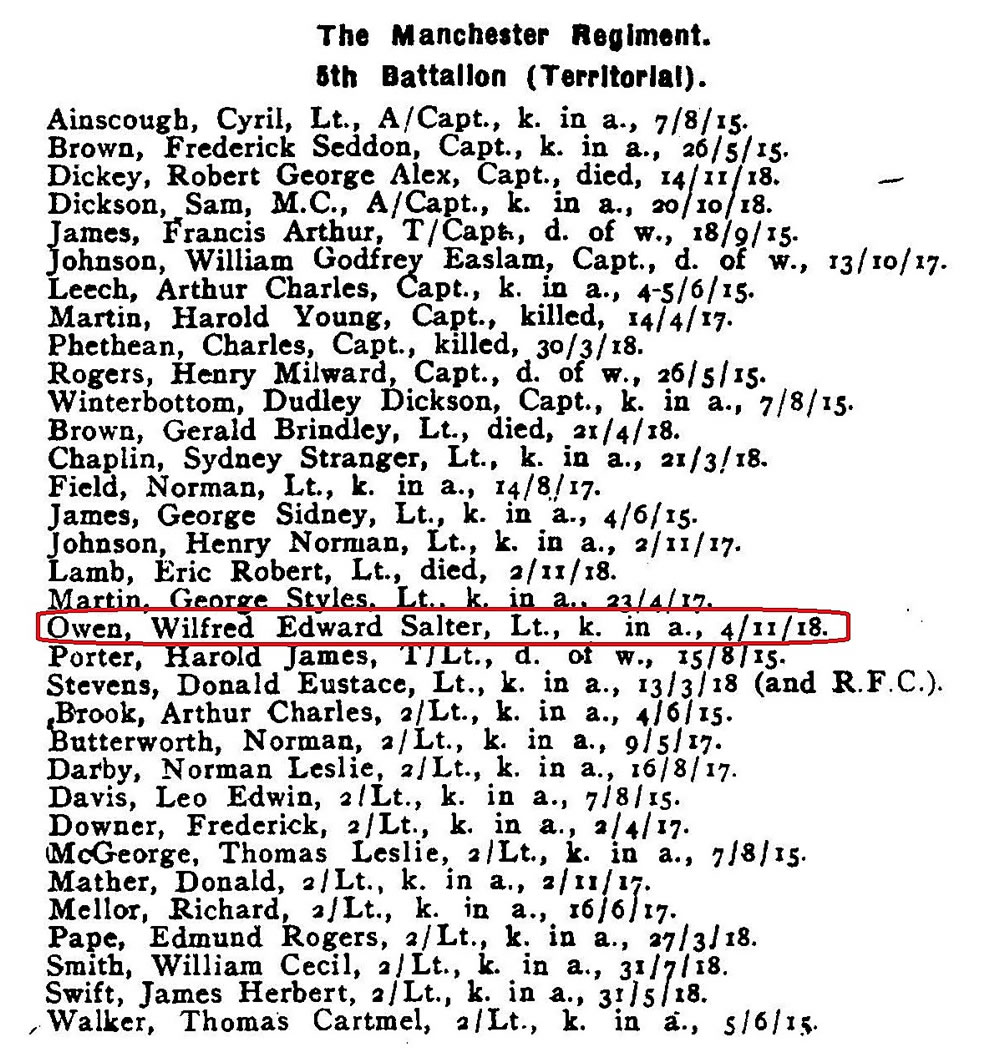
Another link from the results for Wilfred Owen opens up the Commonwealth War Graves Commission website. This will allow us to find his last resting place at the Ors Communal Cemetery in Northern France. By clicking on the third link we are also able to use TheGenealogist’s powerful SmartSearch tool to find relatives, or just confine the search to the Roll of Honour. This allows you to really broaden out your research.
In Wilfred Owen’s case we can find the records for his Campaign Medals, the civil registration of his death in the General Register Office War Deaths, plus his name can be seen on an image of a war memorial in TheGenealogist’s International War Memorial database. We can also see his entry in a couple of Rolls of Honour.
Highest Ranking Officer Killed
We can also find one of the highest ranking officers in the British Army within these records; Field-Marshal Horatio Herbert, the Earl Kitchener of Khartoum. His death is listed as 5 June 1916 as he was travelling to Russia onboard HMS Hampshire to attend negotiations. His Royal Navy ship struck a German mine one and a half miles west of the Orkney Islands and went down, taking 737 lives including Kitchener. In 1914, at the beginning of WW1, Lord Kitchener had become the Secretary of State for War and had a seat in the Cabinet as a Minister so his demise was seen as a particular disaster for the country.
Access Over a Billion Records
Try a four-month Diamond subscription and we’ll apply a lifetime discount making it just £44.95 (standard price £64.95). You’ll gain access to all of our exclusive record collections and unique search tools (Along with Censuses, BMDs, Wills and more), providing you with the best resources online to discover your family history story.
We’ll also give you a free 12-month subscription to Discover Your Ancestors online magazine (worth £24.99), so you can read more great Family History research articles like this!
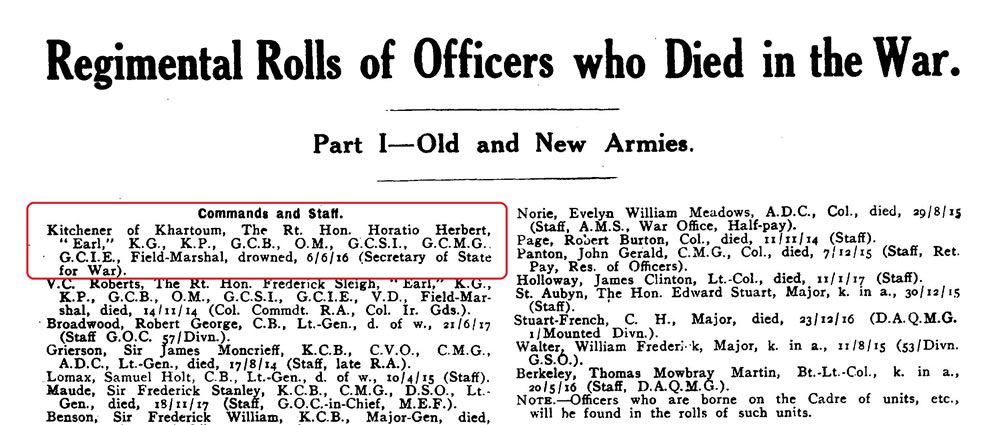
Field-Marshal Lord Kitchener had set sail on board a Royal Navy ship, the HMS Oak, from Scrabster in Caithness heading to Scapa Flow and leaving on 5th June 1916. His party then transferred to the armoured cruiser HMS Hampshire to head for the Russian port of Arkhangelsk in order for Kitchener to carry out a diplomatic mission to Russia. Shortly before 19:30 hrs on the same day the ship, making its way across the sea in a force 9 gale, struck a mine that had been laid by U-75. This submarine was a newly launched German U-boat under the command of Kapitänleutnant Curt Beitzen. HMS Hampshire went down to the west of the Orkney Islands and only twelve of those onboard were to survive, with the death toll reaching 737 souls. Amongst the dead were all ten members of Kitchener’s entourage and his body was never recovered from the sea.
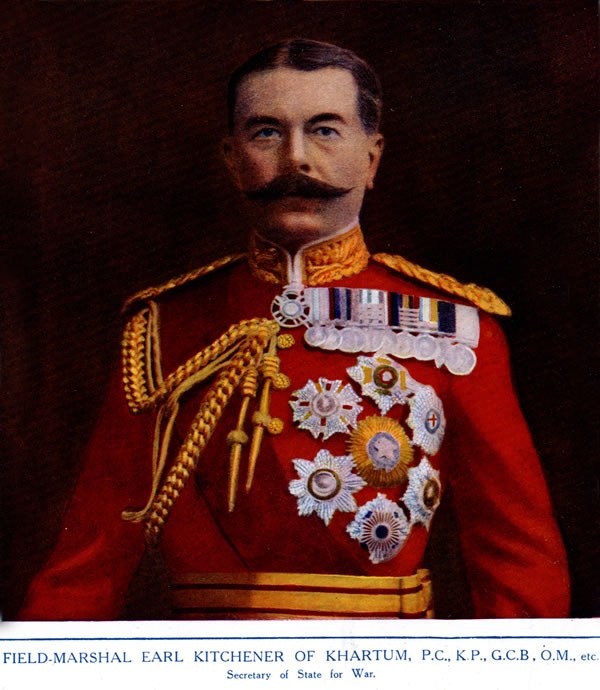
King George V wrote in his diary: “It is indeed a heavy blow to me and a great loss to the nation and the allies.” The King then ordered army officers to wear black armbands for a week as a sign of respect.
If you have Army or Royal Flying Corps officers forebears who died in the First World War then this recordset can help identify their date of death, the officer’s rank, cause of death, regiment and the section of the army that the officer had belonged to. It adds to the already strong military collection on TheGenealogist that can be used to find your World War 1 ancestors.
Come on, the Durhams!
Sporting & Social Historian Keith Gregson has produced a touching tribute to local sporting heros that fell in the war, you can watch the video below:






